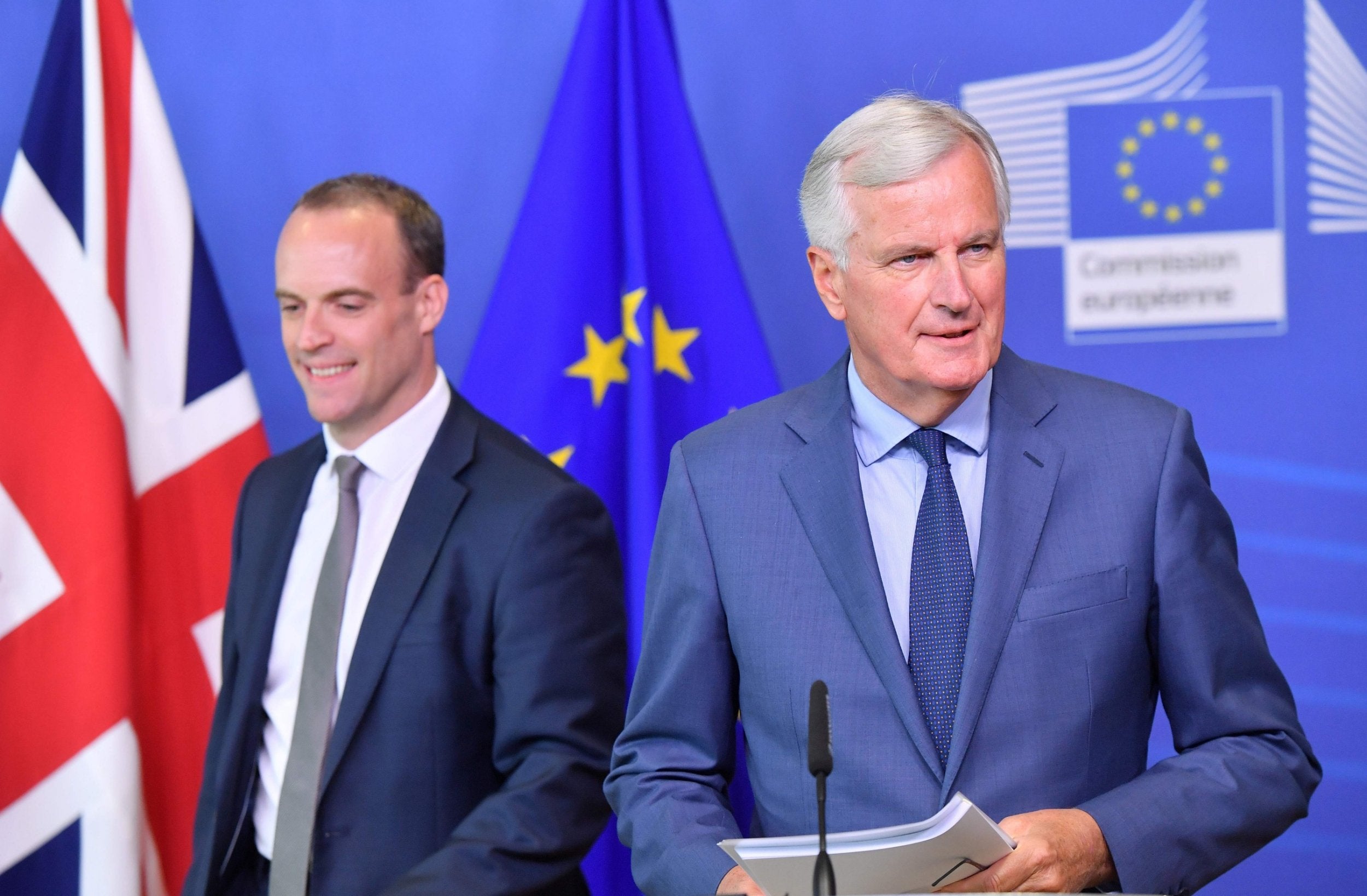Brussels bans EU countries' diplomats from attending Brexit meetings laid on by UK
Britain desperate to talk face to face with member states
The European Commission has reportedly told diplomats from EU countries not to attend a series of Brexit meetings laid on by the UK – reiterating the position that Brussels is the only legitimate negotiator.
The British government is desperate to talk face to face with EU member states where it thinks it will get a better reception for its proposals than with the European Commission (EC), which has shot down proposal after proposal from Theresa May as unworkable.
The UK has tried to coax them in a number of ways: most recently by translating its documents into EU languages in the hope they will be read in European capitals – and now staging a series of meetings specifically for diplomats.
But at a recent meeting in Brussels, diplomats were apparently warned by the European Commission not to attend the UK-hosted briefings – with a reminder that EU national leaders had delegated all responsibility for negotiations to the EC, according to the Politico website.
The UK hopes that direct meetings could give it an advantage by splitting off member states and causing disagreements, while the EU has repeatedly emphasised that it will get the best deal from the UK by presenting a united front, which it has mostly done so far.
The EC declined to comment on the story, claiming it never responded to media reports nor to speculation about the content of working party meetings.

The edict comes amid claims British and German diplomats have reached an understanding to park issues relating to the Chequers plan and any future relationship, and instead focus on finalising a withdrawal agreement to prevent a no deal.
The Bloomberg news agency says officials now expect to only produce a vague outline of the future relationship to avoid having to tackle difficult issues relating to trade before the Brexit deadline.
Such an approach has previously been ruled out by the UK government, which has said it needs detailed guarantees about the future relationship to put to MPs and pass a vote on the plan in the House of Commons.
This was reiterated most recently by cabinet minister David Lidington, who said at the end of August the choice in talks was between the adoption of the Chequers in its entirety, or no deal. The European Commission has always been less concerned with finalising the future relationship early, with the UK the driving force behind discussing trade before it leaves.
A full agreement on the future relationship looks very unlikely to be resolved before the October-November deadline for a withdrawal agreement, given Michel Barnier has effectively ruled out large parts of Ms May’s Chequers proposal on customs and the single market for goods.
A withdrawal agreement covering issues like Northern Ireland, citizens’ rights and the financial settlement has always been all Brussels required to avert no deal, though this does not appear to have been understood by all political actors in Westminster, some of whom have focused on the viability of Chequers.
Other than the issue of the Northern Ireland border, outstanding disputed areas include data protection and a rule of origin relating to EU products.
Dominic Raab, the Brexit secretary, and Michel Barnier, the EU’s chief negotiator, are due to meet once again in Brussels on Thursday for more talks.
Commenting on the attempted meetings with EU diplomats, a spokesperson for the Department for Exiting the European Union said: “As you would expect, following the publication of the white paper, Dexeu has been engaging with a wide range of people, businesses and organisations to explain our proposals for an ambitious future partnership with the EU.
“This includes engagement with London-based representatives of EU member states. We will continue these conversations throughout the Brexit process, as we deliver a deal that works for the UK and the EU.”
Join our commenting forum
Join thought-provoking conversations, follow other Independent readers and see their replies
Comments
Bookmark popover
Removed from bookmarks